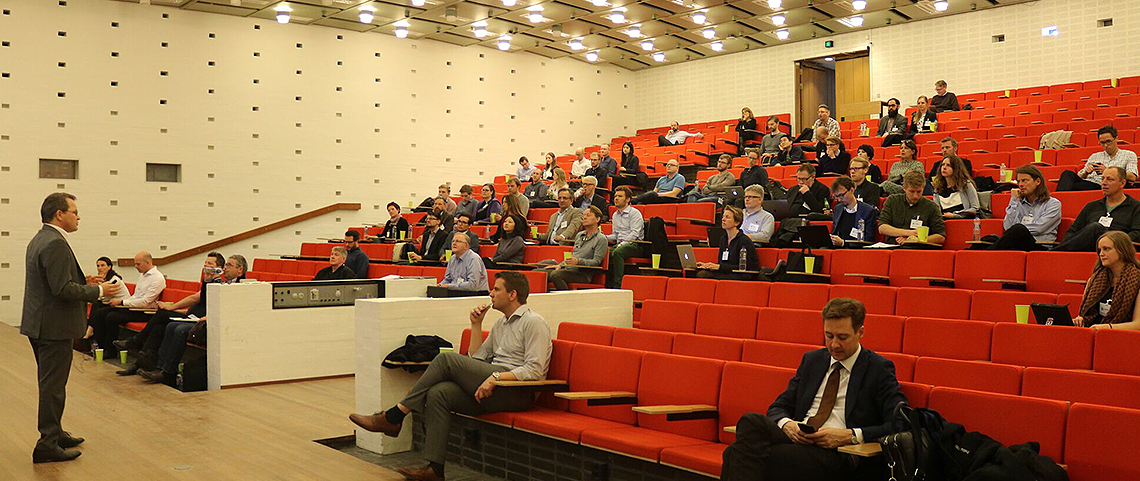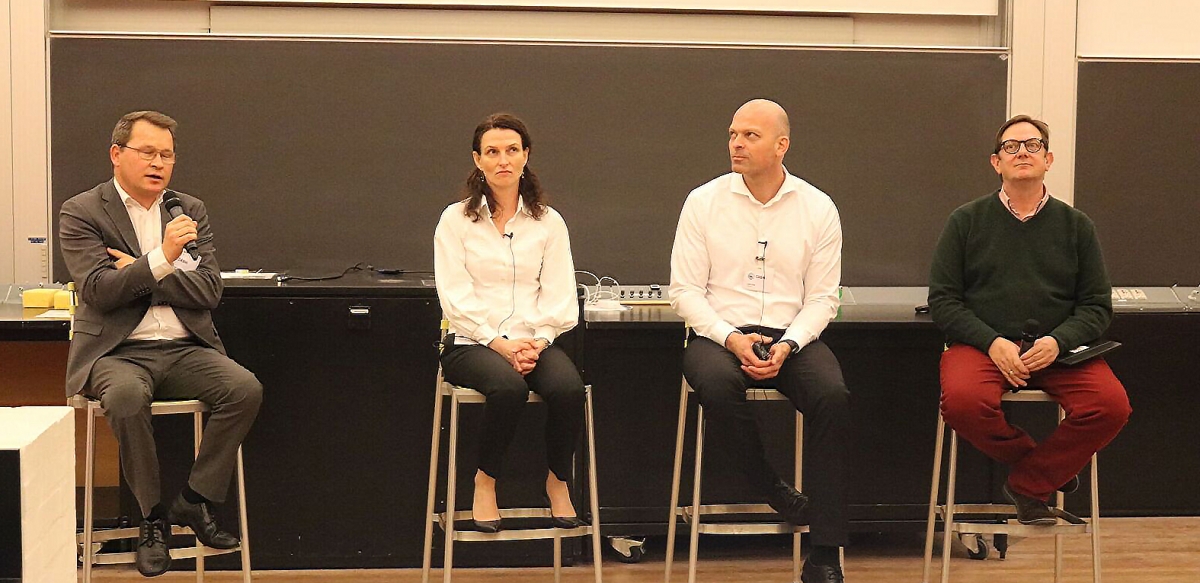Let's boost big data

100 big data enthusiasts from research and industry were gathered at the annual DABAI conference. The purpose was to give insight into the work with big data in key areas such as climate, education and consultancy.
Big data requires efficient algorithms, and it requires collaboration between the best scientists and ambitious companies to incorporate the work of big data into the Danish business community. Therefore, a number of DABAI cases were presented to demonstrate how to exploit the opportunities offered by big data. At the same time, there was a lively debate about how Denmark can exploit the great potential while being ahead of digitization however while lagging behind with using the data. The message was: Seize the opportunity, create confidence, do not fear and get started now!

Clio Online: Teacher support through performance predictions, at primary school level
Clio Online develops digital teaching material for children between 6 and 16 years. Their portals offer tasks for each subject, and they provide training lessons that are automatically corrected, which can save the teachers’ time. But they need to involve the users who may put limits to the use of ML. Teachers lack time but know the students best. Clio Online has become part of the tech industry, and machine learning provides enormous possibilities. However, we are aware that we need to gain the teachers’ confidence, and that they will not let machine learning take full control, says Johannes Kristjansson. The DABAI cooperation has enabled Clio Online to compare data from a large number of quiz results - based on 1.4 million quiz responses from 167,000 active students and 6300 quizzes. On this basis, they can predict how the students will perform.
It provides the teacher with the opportunity to select alternative quizzes or questions for the students who are expected to perform badly. In this way, they do not only learn about the students but they also gain knowledge about the questions and tasks they are setting. The solution has been developed by qualified teachers, and prototyping is the way forward in order to involve the target audience and exploit the full potential of the systems, says Johannes Kristjansson, Head of Innovation, Clio Online.
The Danish Business Authority: Machine Learning and advanced analytics in The Danish Business Authority
The Danish Business Authority is the place where companies start but can also the place where they end. Today, the companies can apply for registration of their businesses in five minutes and they can do it themselves on virk.dk. After the Danish Business Authority entered this field, the number of employees has decreased from 1000 to only a handful. They are now able to provide fast and efficient service, but they would like to make even better use of machine learning. However, they encounter a certain scepticism and therefore the security issue is crucial.
A lot of people are afraid of what we are doing. So thanks to Anders Kofod-Petersen, my big hero, who has knowledge about the field and who emphasises the importance of collecting these data, says Carsten Ingerslev, Head of Office, Danish Business Authority.
Systematic: Optimising Patient Flow - Learning from big data
Systematic participates in DABAI to optimise logistics in hospitals. Inpatient stay has decreased from 5 to 2.5 days in recent years, so patient flow is important as we see an increasing workload at the same time. By means of machine learning, patient flow data can provide real-time demand / capacity management. They want to use visual analytics to help people understand the results and features discovered by use of machine learning. They want to analyze the data for common patterns.
5 hospitals in Northern Jutland have looked at our proposal for the past two months. Some departments may use it, others not. With visual analytics you can get an overview of the flow and get predictions of workload so you can prepare for it, says Mikkel Harbo, Director, Business Development & Operation, Systematic.
EduLab: Optimizing personalised learning in primary schools
EduLab provides online mathematics assignments on the digital math portal matematikfessor.dk. The system uses data to customise tasks for the pupil’s mathematical level to encourage them to continue practising (support practice). This results in a better learning experience.
We have worked with adaptive learning since 2013. We have a high activity level on the platform and this generates lots of data from the Supertrainer. Data can give us the answers we need to adapt the tasks so they address the right level and maintain the pupil’s interest. With DABAI this development has improved, says Kasper Holst Hansen, Founder & CEO, EduLab.
Scalgo: Climate change, big data and algorithms
Scalgo develops software that can predict how the water flows in terrains based on precise digital (huge) models of terrain. 50% of Danish people worry about flooding and this figure is 90% when they consider buying a house. Detail is fundamental to them and the data volume is huge and is constantly being updated. It is publicly available. But it is crucial whether calculations are based on models with a 25-metre resolution versus a 40-centimetre-resolution to locate channels and ponds and thereby provide a correct calculation of water flow. Working with DABAI has allowed them to investigate new datasets and use the most suitable algorithms.
We are trying to push the limit for how large data sets we can calculate without compromising on the details. There is no easy shortcut. With the DABAI cooperation we also want to enter the international market, says Morten Revsbæk, Chief Executive Officer, Co-founder, SCALGO.
Visma Consulting: Advanced Analytics - where research meets business
Machine learning and big data are important research fields to Visma as they want to be leaders in the cloud software field.
DABAI has given us access to experienced scientists from DTU as regards methods and unique knowledge about technology. If you work close to the experts, things move faster, says Torben Ryttersgaard, CEO, Visma Consulting A/S.
DI Digital: Big data driven business development in Danish industry
Big data and digitisation are interesting and relevant topics for all our members. For each job lost due to the Internet, 2.6 new jobs are created. But these jobs do not necessarily emerge in same sector or industry. Denmark is well on its way with regard to digitisation, however, with regard to big data Holland and Belgium are taking the lead. A reason could be that we digitise to become more efficient but not so often with the aim of changing our business model or setup.
Fortunately, we are focusing increasingly on disruption. And as data usage builds on trust and this can make everything stall again. And we cannot allow this to happen, says Christian Hannibal, DI Digital.
Positive aspects: We are ready for new technology, digital infrastructure, high level of digitisation
Negative aspects: We lack a digital mindset, readiness to take risks and IT specialists.

3 mega trends
- Software beats hardware
- Intermediaries will disappear because of new business models
- Robots and advanced products
3 good cases
- Dykon – from efficient production to the duvet of the future
- Karnov – from reading books to letting Artificial Intelligence do it
- Skov – from poultry production to diseases prediction, standardisation
